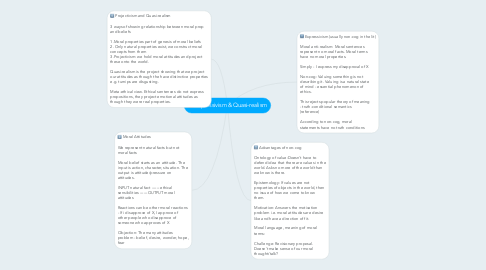Expressivism & Quasi-realism
by Anna Bromely

1. Moral Attitudes We represent natural facts but not moral facts Moral belief starts as an attitude. The input is action, character, situation. The output is attitude/pressure on attitudes. INPUT natural fact ------ ethical sensibilities ------OUTPUT moral attitudes Reactions can be other moral reactions - If i disapprove of X, I approve of other people who disapprove of someone who approves of X Objection: The many attitudes problem - belief, desire, wonder, hope, fear
2. Projectivism and Quasi-realism 3 ways of showing relationship between moral prop and beliefs 1.Moral properties part of genesis of moral beliefs 2. Only natural properties exist, we construct moral concepts from them 3.Projectivism: we hold moral attitudes and project these onto the world. Quasi-realism is the project showing that we project our attitudes as though the have distinctive properties e.g. turnips are disgusting. Meta-ethical view. Ethical sentences do not express propositions, they project emotional attitudes as though they were real properties.
3. Expressivism (usually non-cog in the lit) Moral anti-realism: Moral sentences represent no moral facts. Moral terms have no moral properties. Simply - I express my disapproval of X Non-cog: Valuing something is not describing it. Valuing is a natural state of mind - essential phenomenon of ethics. This rejects popular theory of meaning - truth-conditional semantics (reference) According to non-cog, moral statements have no truth conditions
4. Advantages of non-cog Ontology of value:Doesn't have to defend idea that there are values in the world. Asks no more of the world than we know is there. Epistemology: If values are not properties of objects in the world, then no issue of how we come to know them. Motivation: Answers the motivation problem i.e. moral attitudes are desire like and have a direction of fit. Moral language, meaning of moral terms: Challenge: Revisionary proposal. Doesn't make sense of our moral thought/talk?


